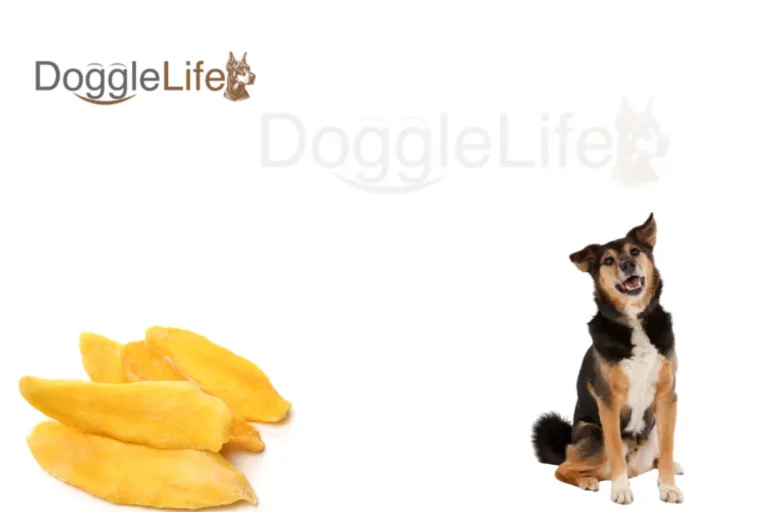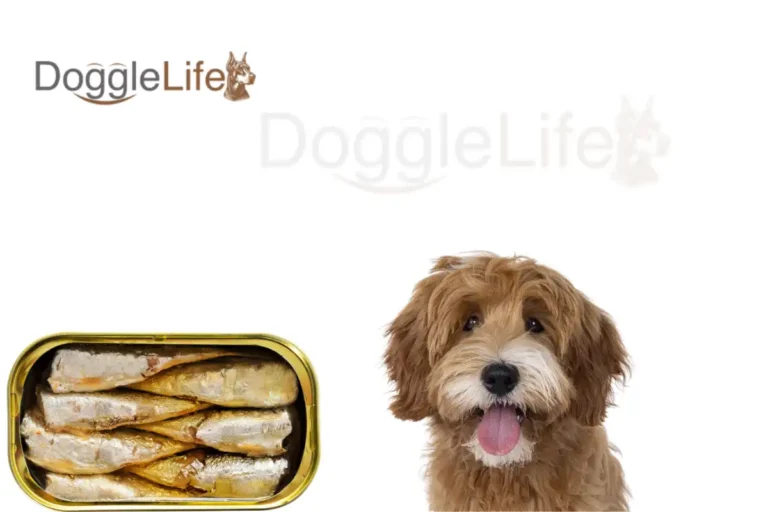Can Dogs Eat Plums Vet Approved
If you’re curious about can dogs eat plums, you’re not alone. Dogs may enjoy plums, but it’s important to know the differences between fresh, dried, black, red, cherry, and green plums. We’ll also cover plum skins, pits, jams, sauces, and even plum cakes, so you can safely share this sweet fruit with your furry friend.

Can Dogs Eat Plums
Dogs can eat plums in very small amounts, but there are some important precautions to keep in mind. The flesh of the plum is safe for dogs, but the pit can be extremely dangerous as it poses a choking hazard and contains toxins like cyanide.
Expert Tip: Always remove the pit before offering plum to your dog and give only small, bite sized pieces to avoid stomach upset.
Can Dogs Eat Dried Plums
Dried plums, also known as prunes, are high in sugar and fiber. Dogs can eat them in tiny quantities, but too many can cause diarrhea or digestive discomfort. Avoid prunes with added sugars or preservatives.
Expert Tip: Treat dried plums as an occasional treat, not a regular snack. Start with just a small piece to see how your dog reacts.
Can Dogs Eat Plum Skin
Plum skin is technically safe for dogs and contains vitamins and antioxidants, but some dogs may have trouble digesting it. Always wash the plum thoroughly before feeding.
Expert Tip: If your dog has a sensitive stomach, peel the plum first to reduce the chance of digestive upset.
Can Dogs Eat Cherry Plums
Cherry plums are similar to regular plums but are smaller and sweeter. Dogs can eat the flesh, but pits must be removed to avoid choking and potential toxicity.
Expert Tip: Serve cherry plums in moderation, and always inspect for any small pits that might have slipped through.
Can Dogs Eat Plums Without the Pit / Stone
Plums without the pit are the safest option for dogs. Removing the pit eliminates the risk of choking and cyanide poisoning, making it much safer for your furry friend.
Expert Tip: Always slice the plum into small pieces and feed in moderation as a healthy, occasional snack.
Can Dogs Eat Black Plums
When it comes to can dogs eat black plums, the answer is yes, but with extreme caution. Black plums themselves are not toxic to dogs, but the pit inside contains cyanogenic compounds which can be very dangerous. Always remove the pit and only give your dog small, occasional pieces of the fruit.
Expert tip: Think of black plums as a treat, not a regular snack. A tiny piece is enough to let your dog enjoy the flavor safely.
See also: Can Dogs Eat Yogurt
See also: Can Dogs Eat Ham
Can Dogs Eat Red Plums
Can dogs eat red plums? Similar to black plums, red plums are safe for dogs in moderation, as long as you remove the pit first. The flesh is rich in vitamins and fiber, which can be beneficial in tiny amounts, but too much can upset your dog’s stomach.
Expert tip: Start with just a small slice to see how your dog reacts, and never let them chew on the pit.
Can Dogs Eat Plums and Peaches
Wondering can dogs eat plums and peaches together? Both fruits are okay for dogs as long as the pits are removed. These fruits are sweet and juicy, but too much sugar can cause digestive problems or even contribute to weight gain.
Expert tip: Think of plums and peaches as dessert treats offer a few small bites occasionally, never as a meal replacement.
See also: Can Dogs Eat Sweet Potatoes
See also: Can Dogs Eat Onions
Can Dogs Eat Plum Pits
Here’s a tricky one: can dogs eat plum pits? Absolutely not. Plum pits contain cyanide compounds that are toxic to dogs and can even cause choking. Always discard the pit before giving any plum pieces to your dog.
Expert tip: Treat plum pits like poison keep them far out of your dog’s reach at all times.
Can Dogs Eat Fresh Plums
Can dogs eat fresh plums safely? Yes, as long as you remove the pit and only give small portions. Fresh plums can provide a sweet, hydrating snack, but too much can lead to diarrhea or upset stomach.
Expert tip: Slice the plum into tiny pieces and watch your dog enjoy the fresh fruit safely. Freshness is key overripe plums can ferment and cause tummy troubles.
Can Dogs Eat Green Plums
Green plums are tart and slightly sour, but can dogs eat green plums? As an expert, I’d say your dog can occasionally nibble on small pieces of green plum without the pit, but they shouldn’t eat too much. The skin is generally safe, but the pit is dangerous because it can cause choking or digestive blockages.
Expert Tip: Always remove the pit and slice the green plum into tiny pieces before offering it to your dog. Start with a small amount to see how your dog reacts.
Can Dogs Eat Italian Plums
Italian plums are juicy and sweet, but can dogs eat Italian plums safely? Dogs can enjoy the flesh of Italian plums in moderation, but the pits must be removed. Too many plums can cause stomach upset due to their natural sugar content.
Quick Tip: Treat Italian plums as an occasional snack, not a regular treat, and never give your dog canned or sugared plum products.
Can Dogs Eat Japanese Plums
Japanese plums are popular for their sweet, delicate taste. So, can dogs eat Japanese plums? Yes, they can, but only the flesh. The skin is generally safe, but the pit contains cyanogenic compounds that can be harmful if ingested.
Pro Advice: Wash the plum thoroughly, remove the pit, and offer only small pieces. Always observe your dog after trying a new fruit.
Can Dogs Eat Plum Cake
Plum cake might smell delicious to your dog, but can dogs eat plum cake? No, not safely. Plum cake contains sugar, butter, and sometimes raisins or nuts, all of which can be toxic or upsetting to your dog’s stomach.
Expert Tip: Never give plum cake to your dog. If you want to share a treat, make a dog friendly plum puree snack without sugar or additives.
Can Dogs Eat Plum Cherries
Plum cherries are small, tart fruits. Can dogs eat plum cherries safely? Dogs can eat the flesh in moderation, but the pits must be removed because they can cause choking or digestive issues. Eating too many can lead to stomach upset.
Pro Tip: Cut the plum cherries into small pieces and remove every pit before feeding them to your dog. Always introduce new fruits slowly.
Can Dogs Eat Plum Flesh
Plum flesh is the sweet, juicy part of the fruit, but can dogs eat plum flesh safely? Yes, dogs can enjoy small amounts of plum flesh as long as the pit is removed. It’s rich in vitamins and fiber, but too much can upset your dog’s stomach.
Expert Tip: Slice the plum flesh into small pieces and offer it as an occasional treat. Start with tiny amounts to see how your dog reacts.
Can Dogs Eat Plum Jam
Plum jam might taste amazing to humans, but can dogs eat plum jam? No, plum jam is high in sugar and often contains preservatives, which can be harmful to your dog.
Pro Advice: Never give your dog plum jam. If you want a fruity treat, stick to fresh, plain plum flesh in small portions.
Can Dogs Eat Plum Sauce
Plum sauce is sweet and savory, but can dogs eat plum sauce safely? Generally, no. Most plum sauces contain sugar, salt, and spices that aren’t good for dogs.
Quick Tip: Avoid giving plum sauce to your dog. If you want to share plums, serve plain plum flesh or mash it without added sugar or spices.
Can Dogs Eat Plum Tomatoes
Plum tomatoes are commonly used in cooking, but can dogs eat plum tomatoes? Yes, dogs can eat ripe plum tomatoes in moderation. Green or unripe tomatoes, however, can be toxic.
Expert Tip: Only serve fully ripe plum tomatoes in small amounts and avoid tomato based sauces with added ingredients.
Can Dogs Eat Plums and Apricots
Plums and apricots are both stone fruits. Can dogs eat plums and apricots together? They can eat the flesh if all pits are removed, but giving too many can lead to stomach upset.
Pro Advice: Introduce one fruit at a time, remove pits completely, and offer small portions as a healthy snack.
Can dogs eat plums and nectarines
Yes, can dogs eat plums and nectarines? The short answer is: with caution. Both plums and nectarines contain vitamins that can be good for dogs in very small amounts, but their pits can be dangerous. Always remove the pit before offering a bite, and give only a tiny piece to see how your dog reacts.
Expert tip: Treat these fruits as an occasional snack, not a daily treat. Dogs can enjoy the taste safely if you remove pits and monitor for any stomach upset.
Can dogs eat purple plums
Can dogs eat purple plums? Purple plums themselves are not toxic, but their pits and stems can be harmful. Offer only a small, pit-free piece occasionally. The flesh of the plum has fiber and some antioxidants, which can support your dog’s digestion in tiny amounts.
Expert tip: I always recommend washing the plum thoroughly and cutting it into tiny, manageable pieces for your dog. Never let them chew the pit.
Can dogs eat sugar plums
Can dogs eat sugar plums? Sugar plums are generally not recommended because of the added sugar. Dogs can tolerate small amounts of natural fruit, but sugar plums often contain extra sugar, which is not healthy for their teeth or metabolism.
Expert tip: If you want to give a sweet treat, stick to fresh fruit with no added sugar. Your dog will thank you, and you avoid unnecessary health risks.
Can dogs eat wild plums
Can dogs eat wild plums? Wild plums can be risky. Many wild varieties have higher levels of cyanogenic compounds in the pits, which can be toxic. Only feed your dog if you are certain it’s safe, and always remove the pit.
Expert tip: When in doubt, skip the wild plums. There are plenty of safe fruits like blueberries or apple slices that make much safer snacks.
Can dogs eat yellow plums
Can dogs eat yellow plums? Yes, yellow plums can be offered in very small amounts, as long as the pit is removed. They provide vitamins like A and C, but too much fruit can cause diarrhea, so moderation is key.
Expert tip: Start with a tiny slice, watch for any stomach upset, and always make fruit a treat, not a meal replacement.
Can Dogs Eat Damson Plums
Yes, can dogs eat damson plums? While damson plums are not toxic, the pit inside is dangerous. Dogs can enjoy the fruit flesh safely, but the stone can cause choking or intestinal blockage.
Tip from a dog nutrition expert: Always remove the pit completely before giving damson plums to your dog, and offer only a small piece as a treat.
Can Dogs Eat Dried Pitted Plums
Can dogs eat dried pitted plums? Dried pitted plums, also known as prunes, are safe in moderation. They can even help with digestion because of their fiber content.
Expert advice: Introduce prunes slowly to your dog’s diet to prevent stomach upset. Too many can cause diarrhea.
Can Dogs Eat Java Plum
Can dogs eat java plum? Java plums are safe for dogs when the seeds are removed. They are rich in vitamins and antioxidants, making them a healthy occasional snack.
Pro tip: Serve only a few small slices and watch for any signs of stomach discomfort when trying a new fruit.
Can Dogs Eat Pears and Plums
Can dogs eat pears and plums together? Both fruits are fine for dogs in small amounts, but make sure all seeds and pits are removed. Overfeeding can upset your dog’s stomach.
Expert tip: Slice the fruits into bite sized pieces and offer them as a refreshing treat instead of sugary snacks.
Can Dogs Eat Plums UK
Can dogs eat plums UK varieties? Yes, dogs can eat plums grown in the UK, but the pits must always be removed. Flesh is safe, but pits are toxic if ingested.
Advice from a dog food specialist: Keep portions small and monitor your dog for any digestive reactions when introducing plums.
Can Dogs Eat Sour Plum
Can dogs eat sour plum? Sour plums are safe in moderation, but their acidity can irritate some dogs’ stomachs. Always remove the pit.
Pro tip: If your dog has a sensitive stomach, consider offering sweet plums instead of sour ones to avoid digestive upset.
Can Dogs Eat Spanish Plum
Can dogs eat Spanish plum? Yes, dogs can enjoy Spanish plums as long as the stone is removed. These plums are juicy and safe, but should be given sparingly.
Expert advice: Treat plums as an occasional snack, not a regular meal, and always remove pits to prevent choking hazards.
Knowing can dogs eat plums helps keep your dog safe while enjoying a tasty treat. From fresh and dried plums to plum skins, pits, and jams, understanding which types are safe ensures your dog can enjoy plums without risks.






